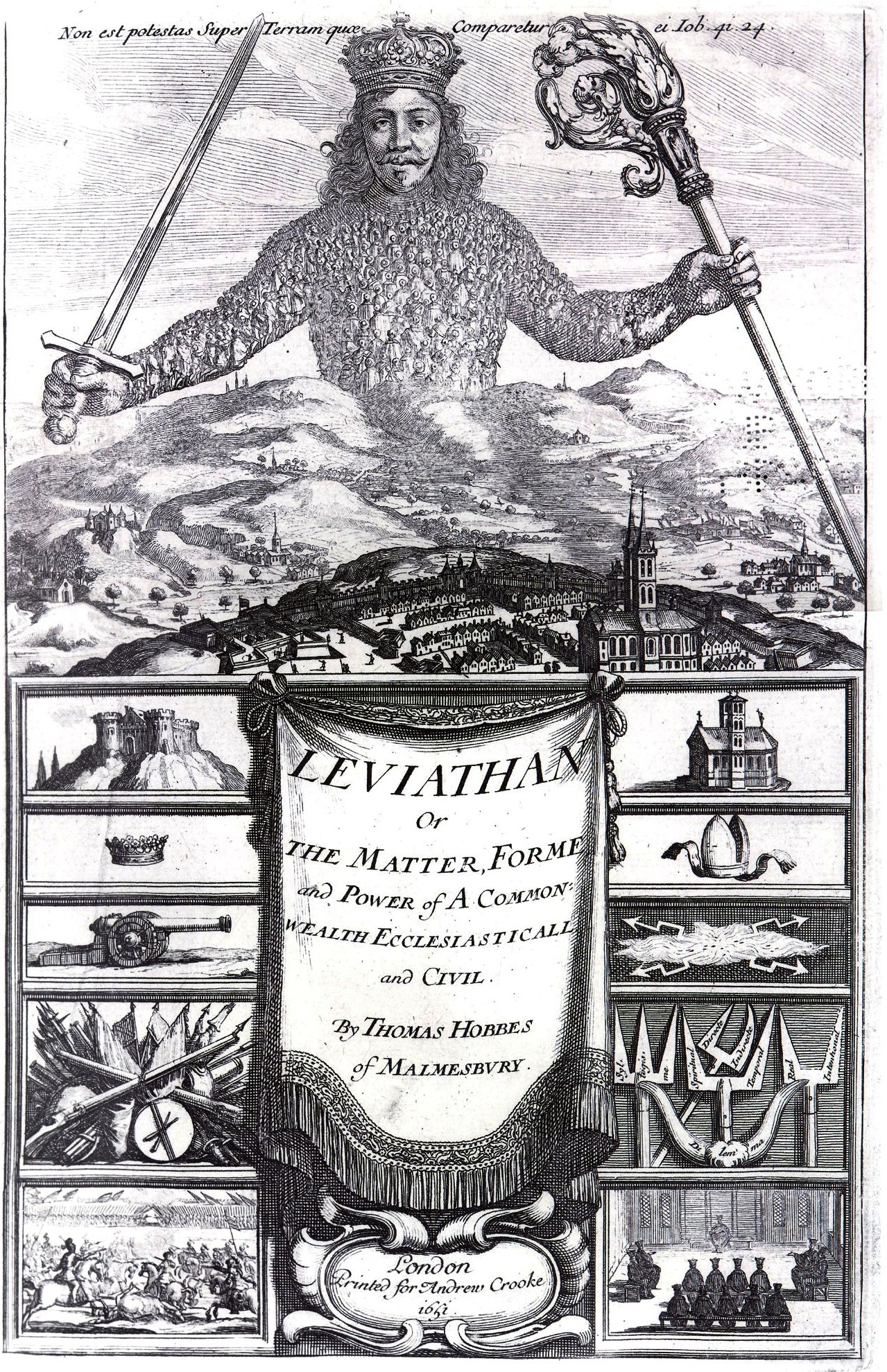No. 6
June 2023

May 6 Coronation of Charles III
• A Coronation Which Sounds the Monarchy's Death Knell
• If the Monarch and the Monarchy Are Symbols, What Do These Symbols Represent?
• Lifting the Veil on the Secrets of State
• The Obsolete King's Commonwealth
The Monarchy and "Soft Power"
• Charles III and the Rebooting of Britain's "Soft Power"
• Letter to the
Editor on British Armaments Company's
Role in Canada
In the Canadian Parliament
• Threats Against Quebec Party Leader
Reveal Impotence of Establishment Forces
• Significant and
Historic Support for Motion to Sever Ties Between Canada and
British Monarchy
May 6 Coronation of Charles III
A Coronation Which Sounds the
Monarchy's Death Knell
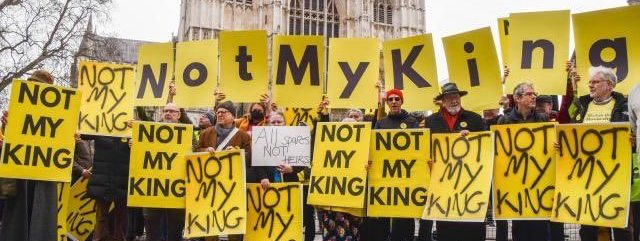
The Coronation of Charles III on May 6 at Westminster Abbey in London, England, provided evidence of how the persona that Charles is creating for himself is a fiction. He is a character in a play of which he is also the playwright. The role he has given himself in this play is of an actor said to be "modern," "progressive" and "green" who upholds what is being put forward for some time as the duty of human beings "to be of service." The entire three minute speech of the Archbishop of Canterbury at the Coronation was devoted to this theme of service.
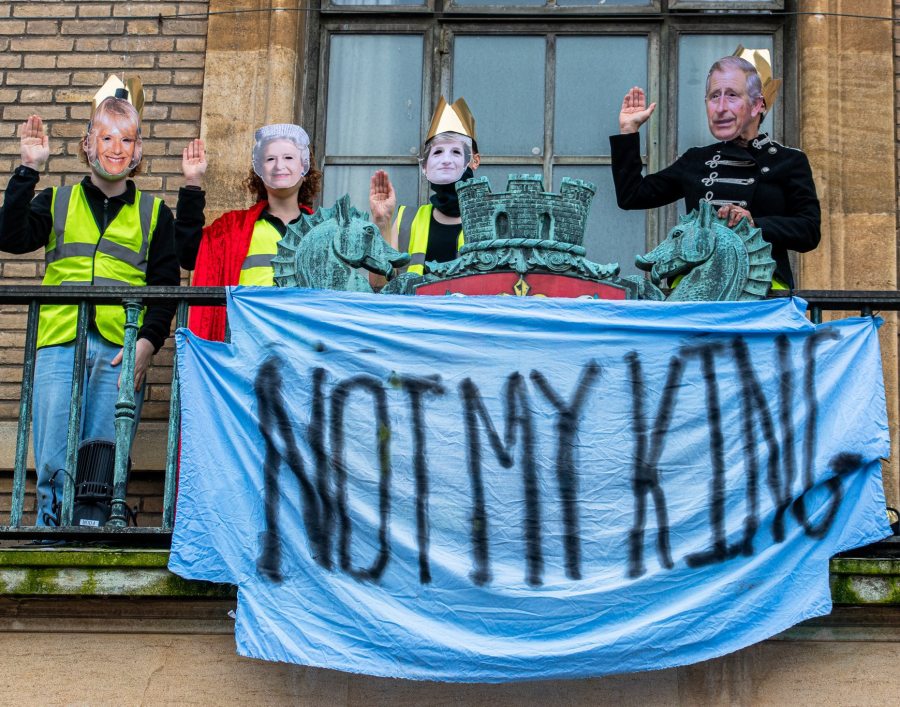 As the head of state in a
constitutional monarchy Charles' assigned role is to incarnate
the unity of the nation for which purpose he is to remain above
the fighting of factions and serve whatever faction forms the
government at any time. One obvious problem with this is that
the United Kingdom is neither united -- except by law entered
into as a result of the use of force to conquer the subject
nations -- and nor is it a nation. It is a state comprised of
England, Scotland and Wales and part of the divided nation of
Ireland, all of which it treats as "possessions." So too the
relationship between the monarch and "his realms and
territories" is acquired through conquest and whatever
constitutional arrangements made the King or Queen of England
the monarch of all these "realms and possessions." The
"belonging" of these "realms and possessions" to the monarch is
as fictional as is the notion that "their monarch" is a unifying
factor. It is absurd.
As the head of state in a
constitutional monarchy Charles' assigned role is to incarnate
the unity of the nation for which purpose he is to remain above
the fighting of factions and serve whatever faction forms the
government at any time. One obvious problem with this is that
the United Kingdom is neither united -- except by law entered
into as a result of the use of force to conquer the subject
nations -- and nor is it a nation. It is a state comprised of
England, Scotland and Wales and part of the divided nation of
Ireland, all of which it treats as "possessions." So too the
relationship between the monarch and "his realms and
territories" is acquired through conquest and whatever
constitutional arrangements made the King or Queen of England
the monarch of all these "realms and possessions." The
"belonging" of these "realms and possessions" to the monarch is
as fictional as is the notion that "their monarch" is a unifying
factor. It is absurd.
The system which vests the supreme authority in the person of state was devised following the English Civil War after the attempt by Oliver Cromwell to establish a public authority did not solve the problem of how to provide a succession. When speaking about a succession the primary reference is to a system of rule whereby the supreme power is peacefully passed on to those designated to rule according to whatever arrangements exist at the time and place.
In France and England, the pronouncement The King Is Dead, Long Live the King (or Queen as the case may be) was first practiced in the 12th century to make sure there was no power vacuum. It was to avert civil wars and wars over control of territory and the spiritual authority at a time the King might be away, even for years, fighting a war elsewhere or on a Crusade, for example. Wars between conflicting interests were constant in Europe during the Middle Ages. The Hundred Years' War was a series of armed conflicts between the kingdoms of England and France during the Late Middle Ages. It originated from disputed claims to the French throne between the English House of Plantagenet and the French House of Valois. It lasted for 116 years, from 1337-1453, with the English trying to reclaim the Duchy of Aquitaine and other lands and also pressing a claim to the Kingship of France. By all accounts, these wars were incredibly ferocious. According to one source's colourful description, when the people conscripted to fight for one side or the other "weren't being slaughtered by arrows raining down from the sky, soldiers were hacked or pounded to death by swords, axes and hammers."
Today, besides the hereditary succession of kings and queens in the event countries are still saddled with monarchs who act as heads of state, an orderly succession is supposed to be guaranteed through the system of elections in what is called a representative democracy. In line with Covenant Thesis adopted in the 17th century to bring England out of Civil War, "the people" belong to a nation-state represented by a head of state, either a hereditary monarch or a president who wields the supreme authority and, in turn, is said to represent them. This Thesis established the European nation-state as the model adopted or imposed on all the countries of the world since then. Unless a system of government and rule is deliberately established which is not based on Covenant Thesis, it is the monarch or head of state who writes the story of what he/she represents -- a story enforced through a formal Constitution or constitutional convention or both. They define what are called the democratic institutions and the democratic process.
It is not the people in whose name they speak who write anything, decide anything or control anything because they hand over their authority to representatives. In this regard, elections said to be to make sure they have representation are in fact the point at which their disempowerment is consummated. Their vote authorizes others to represent them which means to speak and act in their name. Furthermore, because the people entered into a Covenant to create this person of state and to be represented by him, ipso facto, whatever he represents is what they stand for -- and that is that. When the people elect a "representative" to "act in their name," that representative represents the monarch and pledges allegiance to the monarch, which is to say, the representative must be a representation of the representation of the supreme power as represented by the monarch.
According to convention of "King (or Queen)-in-Parliament," as well as in the case of a Republic, sovereignty -- the decision-making power -- is vested in the legislative assembly which is said to represent the people -- the commons -- and curtail the otherwise unlimited powers of the head of state. The monarch is said to represent the united people on the basis of values handed over by God and be merely symbolic.
Despite this, there is nothing symbolic about the system established to enforce those values in which the persona of the monarch plays a part which is integral to every aspect of life -- from coinage to nomenclature of topography, streets, towns, cities and provinces, to signing every law without which it cannot be enforced, to commanding the armed forces, to how matters of crime and punishment are weighed on the scales of justice, and so on. Members of the parliament pledge to represent the monarch, or in the case of the United States and other republics, as well as Quebec, "the people" or "the constitution." The issue thus comes right back to what the constitution represents, how it defines "the people" and who constitute "the people" and what "the people" are said to represent.
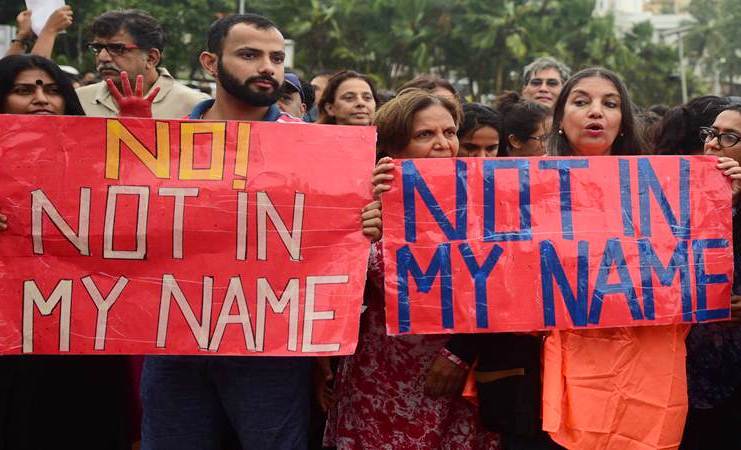 The serious problem today is that
elections no long guarantee an orderly transition of power.
While the electoral system in a representative democracy is for
purposes of disempowering the people by handing over their
authority to those who represent the monarch or head of state,
today people clearly see that they have no connection to the
process. Elections are designed to form a party government and
today the parties are mafia-like organizations, omerta
and all, which form cartels to keep those not part of their
exclusionary clubs out of power. They are fashioned by
oligopolies who get paid to form parties, run parties, create
the issues, attack the others contending in the election and so
on. These are enormous electoral machines which control media,
courts, the judiciary, the electoral process, all to sow
disunity and civil wars. The rivalry between factions today is
such that they no longer recognize what used to be called "the
rules of the game" or they manipulate them in such a self
serving way, the people they claim to represent have long since
ceased to see themselves represented by them. "Not in my name,"
"not in my community," not my democracy," "not my king," are all
statements to this effect.
The serious problem today is that
elections no long guarantee an orderly transition of power.
While the electoral system in a representative democracy is for
purposes of disempowering the people by handing over their
authority to those who represent the monarch or head of state,
today people clearly see that they have no connection to the
process. Elections are designed to form a party government and
today the parties are mafia-like organizations, omerta
and all, which form cartels to keep those not part of their
exclusionary clubs out of power. They are fashioned by
oligopolies who get paid to form parties, run parties, create
the issues, attack the others contending in the election and so
on. These are enormous electoral machines which control media,
courts, the judiciary, the electoral process, all to sow
disunity and civil wars. The rivalry between factions today is
such that they no longer recognize what used to be called "the
rules of the game" or they manipulate them in such a self
serving way, the people they claim to represent have long since
ceased to see themselves represented by them. "Not in my name,"
"not in my community," not my democracy," "not my king," are all
statements to this effect.
The cartel parties in the parliaments and legislatures are integral to the oligopolies which have usurped the decision-making power as a result of the privatization of the state itself. These oligopolies intervene in the political domain in the form of cartels and coalitions which influence the decisions of states. Their factional fighting is going out of control of the existing forms adopted 400 years ago to keep them in check. The shenanigans in the British Parliament during and after Brexit are testimony of this, as is the high level of anarchy and violence which is taking such a huge toll in the United States where there is absolutely no consensus on what the Constitution stands for, let alone who constitutes "We the people."
The insurrection which took place in the United States on January 6, 2021 during the session of the Congress held to confirm the election of the next president seems to be far from over, no matter how much the electoral machine presenting the current president of the United States for re-election uses the judicial power to turn his rivals into outlaws. The unprecedented level of corruption seen in the use of prerogative powers of presidents and supreme court justices and ministers and, in Canada, the constant enactment of laws on the federal and provincial basis to give ministers "the right" to act with impunity in the service of narrow private interests are but a few examples of persons of state and ministers who claim mandates despite elections which are not seen by the people to confer mandates of any kind.
Today we see one faction smashing the limitations imposed on the police powers by the Constitution in the name of maintaining the constitutional order to ensure a peaceful transition of power. We see rival factions directly smashing the Constitutions in order to remove the limitations they impose on the police powers exercised by the heads of state and Ministers. In this vein, Charles III has also set a course for himself to smash the limitations hitherto seen to apply to him by the convention of King-in-Parliament and the allegedly symbolic role he is said to represent. He clearly sees it necessary to come out swinging to advocate the "unifying values" he as the person of the British state represents. His every word has been to tell one and all that the values he espoused is what they also espouse because he is their representative and they must recognize him as such in order to guarantee the stability of the constitutional order.
When the values the state represents are not seen by the people to be the values they stand for, what is to be done? How do you force a people to acquiesce to something that goes against their conscience? The conception of doing things in the name of "the greater good" has been abused one time too many. It has been trampled in the mud one time too many. The people have been asked to sacrifice their interests in the name of "the greater good," and carried the burden while they watch the rich get richer at their expense, one time too many. An increasing number of them are no longer willing to forsake their conscience in the name of "the greater good." Whose greater good would that be which convinces the people to look up to it and consider it their duty to 'obey'?
The coronation of Charles III and his wife Camilla was such a sordid manifestation of power and privilege that only a very minuscule few could see themselves represented in it. The message it conveyed of service and volunteerism to replace a modern society which recognizes the equality of membership of all and their right to take the decisions which affect their lives cannot square the circle of the failure of the state to meet the needs of the people. The evidence of the wealth of the royal family and those considered to be their "peers" and what they do to protect that wealth is an offence to any modern conscience. Meanwhile, the institutions of the public authority that are supposed to take care of the people have either been destroyed or no longer function. Such a state of affairs tears to shreds the fiction of the person of state and constitutional arrangements it is designed to preserve.
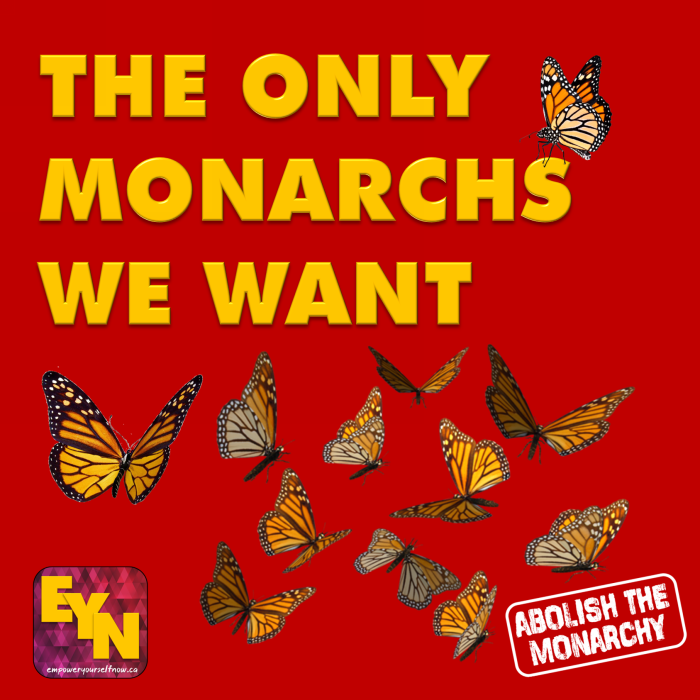 Far from "tradition" preserving the
stability of the constitutional order, the ruling class is
destroying the constitutional order all by itself. It is
smashing the limitations imposed on their own prerogative powers
and in so doing the rule has become one of police powers which
operate above the rule of law. Furthermore, it is enforcing the
constitutional limitations which were designed from the
beginning to keep the people in check by imposing "reasonable
limitations" on their rights and freedoms. These limitations
gave rise to what was known since the 19th century as a public
authority based on the utilitarian philosophy known as "the
greatest good for the greatest number." Self-serving arguments
about national security have now increased these limitations to
justify defaming, criminalizing, marginalizing and even
outlawing those who speak in their own name and are thus
said to destabilize the constitutional order. Charles' direct
interventions in the matters of state will not make the monarchy
and its fundamentally elitist design either modern or palatable.
Far from "tradition" preserving the
stability of the constitutional order, the ruling class is
destroying the constitutional order all by itself. It is
smashing the limitations imposed on their own prerogative powers
and in so doing the rule has become one of police powers which
operate above the rule of law. Furthermore, it is enforcing the
constitutional limitations which were designed from the
beginning to keep the people in check by imposing "reasonable
limitations" on their rights and freedoms. These limitations
gave rise to what was known since the 19th century as a public
authority based on the utilitarian philosophy known as "the
greatest good for the greatest number." Self-serving arguments
about national security have now increased these limitations to
justify defaming, criminalizing, marginalizing and even
outlawing those who speak in their own name and are thus
said to destabilize the constitutional order. Charles' direct
interventions in the matters of state will not make the monarchy
and its fundamentally elitist design either modern or palatable.
This coronation of Charles III and his wife, far from representing a new beginning for the monarchy, sounded its death knell. The way forward on the path for democratic renewal and a modern constitution can begin by abolishing the monarchy with the aim of establishing a system which vests sovereignty in the people, as defined by the people themselves on a mass democratic basis.
Note
A death knell is the ringing of a church bell to announce the death of a person or phenomenon. Historically, the death knell is the second of three bells rung to announce a death; the first being the passing bell to warn of impending death, and the last was the lych bell or corpse bell, which survives today as the funeral toll, the bell rung at a funeral.
If the Monarch and the Monarchy Are Symbols, What Do These Symbols Represent?
The rulers keep repeating that the monarchy is symbolic. Repeating this over and over presents a serious difficulty, not just for the rulers but also for the people because, in symbolism, important arrangements are represented. Just repeating that the monarchy is a symbol of continuity, stability, etc. doesn't answer the questions: Continuity of what? Stability of what? What are they trying to maintain so that it will not collapse?
These are the questions that the rulers are having great difficulty with because the answers can be convincing only so long as people accept the theory of representation behind the existing arrangements. These arrangements have become dysfunctional because they no longer meet the requirements of the times. The theory behind them known as Covenant Thesis is outdated and no longer holds. How does this repetition that the monarchy represents stability of the constitutional order change these facts? It doesn't.
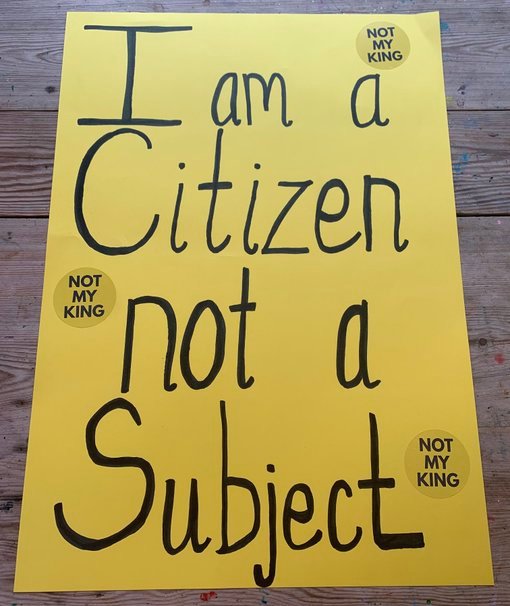 There are two main problems with
the existing "symbolic" arrangements. Firstly, the people do not
accept them because they do not see themselves represented by
them and, indeed, they are not. Secondly, the existing
arrangements no longer serve to quell the increasingly serious
and even armed fights between sections of the ruling elites
vying to control the supreme authority of the state, giving rise
to civil wars at home and imperialist wars abroad.
There are two main problems with
the existing "symbolic" arrangements. Firstly, the people do not
accept them because they do not see themselves represented by
them and, indeed, they are not. Secondly, the existing
arrangements no longer serve to quell the increasingly serious
and even armed fights between sections of the ruling elites
vying to control the supreme authority of the state, giving rise
to civil wars at home and imperialist wars abroad.
Nor do the existing arrangements serve to quell the increasingly determined uprisings of the peoples putting forward the claims they are entitled to make on society. The elites have no intention of satisfying these claims. They respond with the use of the courts and force while elections to legitimate the system of representation sort out nothing as concerns guaranteeing the stable transfer of power from one faction to another and the stability of the constitutional order.
This projects internationally as well where wars are no longer politics by other means because many bodies politic of peoples are being, or have been, destroyed.
The existing system of representation brought into being in the late 1660s was based on what is called Covenant Thesis. Part of the current pressure to dismiss the significance of these arrangements, which enshrine the continued existence of a British King as head of state for Canada, is to dismiss why they are dysfunctional. The battle of democracy is one that rages over time to advance society by making sure the arrangements are consistent with the needs. Today this battle requires elimination of the obsolete arrangements and their institutions, not their continuity. Analyzing the reasons for the dysfunction is necessary to ensure the Old is not replicated. The Old is not what guides our struggles today.
Covenant Thesis contends that the "people" covenant to be represented by the head of state who exists above everyone and everything in the form of a fictitious person who incarnates the fiat of God -- God's commandments. These were allegedly transmitted to the "chosen people" by Moses. Under the influence of the Greeks and Romans and under their tutelage, God's commandments are referred to as Mosaic Law. They get canonized and the conception is presented of "the sovereign's" alliance with God through which God vests "the sovereign" with the supreme spiritual power and supreme temporal power over the "dominions of God." This "Covenant of Covenants" and the "Covenant of the people with the sovereign" are then declared the foundational principles in res publica -- public affairs -- in what becomes known as the Christian world.
|
According to Covenant Thesis, the sovereign is anointed to represent God and be the mediator between God and the people over matters which pertain to war and peace, crime and punishment, life and death. The sword and bishop's staff, the symbols of said role, represent his command in matters both temporal and spiritual. In the work of Thomas Hobbes, this then translates into a Covenant between the people and the sovereign who is entrusted by them to represent them.
The sovereign can exist in the form of a King or a president or a prime minister. Hobbes did not make an argument for Kings having a God-given right to rule, as he was writing at a time when the King was beheaded and civil wars were occurring. Rather, a fictitious person of state is created which wields the supreme power. It carries on from one government to the next, represented by the sovereign, the person of state.
The sovereign creates the image of himself as a fiction of what is represented. He tries to create a persona as one which is said to represent the nation, made up of the people. It is a complicated exchange. According to Hobbes, the people authorize the sovereign to represent them and are represented by him. The sovereign, with supreme power, says what it is he represents. The sovereign is said to have created a representation of the people because they covenanted to have this person of state, which is said to mirror the alliance of the people with God. It is like the logic of the Trinity according to which God has three persons -- he is at once the Father, the Son and the Holy Ghost. His commandments get canonized in four of the books of the New Testament: the Gospels of Matthew, Mark, Luke and John who are evangelists -- they spread the word of God and his commandments.
We are to pay homage to the sovereign because he interprets everything for us. He demands loyalty, as Charles III has, as President Biden does, as the only ones with the knowledge and power to decide matters of state, both spiritual and temporal. Today these Old arrangements are so dysfunctional that even the concept of the person of state taking social responsibility for the people is no longer promoted.
It is no surprise to find that the current Bishop of Canterbury is not only from the same class and background as the peers of the British "realm" but he is known as an evangelist minister. According to his CV, "The Most Reverend Justin Welby was educated at Eton College and Trinity College, Cambridge, where he studied history and law. For 11 years -- five in Paris and six in London -- he worked in the oil industry, becoming group treasurer of a large British exploration and production company." He then began training for the ministry in 1989, whereupon he became Bishop of Durham, Dean of Liverpool Cathedral and a Canon of Coventry Cathedral where he worked extensively on reconciliation. "In the summer of 2012, he was asked to join the Parliamentary Commission on Banking Standards. On November 9, 2012, Justin Welby was announced as the 105th Archbishop of the See of Canterbury. He officially became Archbishop on February 4, 2013, succeeding Dr. Rowan Williams who retired at the end of December 2012."
Elsewhere it is noted, "It is the Archbishop of Canterbury who has the privilege of crowning the kings and queens of England and ranks immediately after the princes of royal blood. The Archbishop's official residence is at Lambeth Palace, London, and second residence at the Old Palace, Canterbury."[1]
When Charles III was crowned in Westminster Abbey on May 6, the Archbishop's sermon addressed the theme of service. Right from the beginning, at the very second sentence, the Archbishop said: "Here we are to crown a King, and we crown a King to serve." His entire presentation elaborates what this means and, in so doing, he tells us exactly how Charles III will fashion his persona into a person who allegedly serves and is not served.
Service is one of the five principles of evangelism of which there are three modes: "the natural mode, the body/life mode and the ministry mode." The six styles of evangelism are: "Direct, Intellectual, Testimonial, Relational, Invitational and Service." The premise is: "Every single person has God-given gifts and abilities that fall into one or more of these six approaches. A church community will have all of the styles present."
The full text of the speech delivered by the Archbishop of Canterbury at the King's Coronation is provided below for purposes of illustrating what is meant by "service." It is also to inform deliberation on how this conception of every member of society being in service compares with the demand of the peoples today for a society which fulfills its social responsibilities by affirming the rights which belong to all persons by virtue of their being human.
The demand of the peoples today is to end the brutal anti-social offensive and humanize the natural and social environment. This anti-social offensive does not recognize society and its responsibilities at all. It is privatizing everything, and turning all members of the body politic into disposable things whose rights are not recognized. Everything is based on volunteerism and begging for charity and mercy from governments and from those who are our "superiors" and wield decision-making power.
In this, the King and his Archbishop are giving a modern veneer to the old feudal conception of noblesse oblige -- the recognition that the nobility had obligations towards their tenants. This conception was brought into our era once the capitalist relations prevailed in the 19th and 20th centuries based on the utilitarian conception of "the greatest good for the greatest number."
A public authority was created that saw to it that those who were poor and impoverished were cared for by charitable institutions. Those who were well off or better off were duty-bound to sustain these charities and "feed the poor." In the post-World War II period it gave rise to the social-welfare state, all of it to keep the working classes subjected to the rule of "their superiors" who constituted the bourgeoisie and along with it, maintained the aristocracy.
 In the 1989-1991 period,
neo-liberalism took root in the economy and an anti-social
offensive was unleashed which dismantled the structures of the
social welfare state. Since then the public authority has been
destroyed, social programs have been undermined and starved of
funding – including the systems of education and health care.
"Volunteering" was introduced by George W. Bush in the United
States, espoused also by the proponents of the "Third Way" and
promoted by the likes of Tony Blair, Bill Clinton and even
Justin Trudeau. In the 1960s it was advocated by John F. Kennedy
who said, "Ask not what your country can do for you -- ask what
you can do for your country," and further by Obama who created
organizations directed at the youth known as "I Am My Brother's
Keeper." All of it is to hide the failure of existing
arrangements to guarantee the rights of the peoples, the basis
to judge the validity of governing arrangements.
In the 1989-1991 period,
neo-liberalism took root in the economy and an anti-social
offensive was unleashed which dismantled the structures of the
social welfare state. Since then the public authority has been
destroyed, social programs have been undermined and starved of
funding – including the systems of education and health care.
"Volunteering" was introduced by George W. Bush in the United
States, espoused also by the proponents of the "Third Way" and
promoted by the likes of Tony Blair, Bill Clinton and even
Justin Trudeau. In the 1960s it was advocated by John F. Kennedy
who said, "Ask not what your country can do for you -- ask what
you can do for your country," and further by Obama who created
organizations directed at the youth known as "I Am My Brother's
Keeper." All of it is to hide the failure of existing
arrangements to guarantee the rights of the peoples, the basis
to judge the validity of governing arrangements.
Noblesse Oblige
An important aspect on how the monarchy helps to preserve the status quo is its role in maintaining the conception of noblesse oblige to fashion a system in which the social responsibilities of a modern state to uphold the rights of all and provide them with a guarantee is forsaken. Instead, people are supposed to beg for mercy from the rich as well as those who govern.
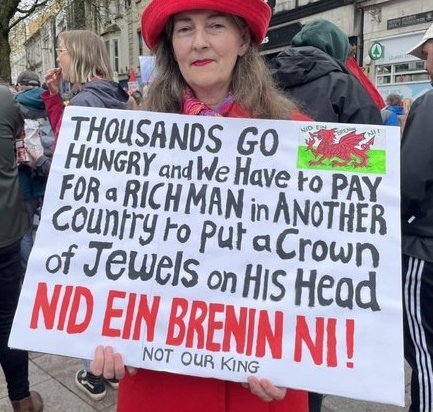 Noblesse
oblige is the inferred responsibility of privileged
people to act with generosity and nobility toward those "less
privileged." Not a day goes by when organizations -- from
hospitals to the Humane Society to women's shelters to
anti-poverty groups and food banks and many others -- do not
have to plead for money and mercy to keep their programs going.
This conception of noblesse oblige is used to
legitimate how those who acquire obscene wealth go about doing
so and all the corruption involved in their manipulation of tax
benefits and exemptions for their charities and foundations. It
is also intended to stop discussion on the fact that a modern
society cannot be based on the charity and beneficence of those
who control the purse strings.
Noblesse
oblige is the inferred responsibility of privileged
people to act with generosity and nobility toward those "less
privileged." Not a day goes by when organizations -- from
hospitals to the Humane Society to women's shelters to
anti-poverty groups and food banks and many others -- do not
have to plead for money and mercy to keep their programs going.
This conception of noblesse oblige is used to
legitimate how those who acquire obscene wealth go about doing
so and all the corruption involved in their manipulation of tax
benefits and exemptions for their charities and foundations. It
is also intended to stop discussion on the fact that a modern
society cannot be based on the charity and beneficence of those
who control the purse strings.
A society based on the medieval ethos and practice of noblesse oblige perpetuates assumptions that those who are deemed to be successful by the standards the ruling class imposes, are superior and "the idea that the upper class has gifts to offer the rest of the world, and those poor, marginalized underprivileged people are grateful recipients of this beneficence. It's a generosity that perpetuates a hierarchy. It keeps the privileged behind a wall of wealth, education and power. It also keeps the 'noblesse' out of touch with the reality of life outside that wall, out of touch with economic hardship, out of touch with hard work that doesn't lead to economic success, out of touch with human suffering and a broader array of human diversity."[2]
Putting up with it becomes a necessity in order to access that beneficence. The monarchy promotes day and night the "duty" of the "working royals" to sponsor this, that and the other charity. It is all about accepting that this is the way things are and there is no alternative. In other words, it promotes an outlook which is disempowering -- it actively deprives people of an outlook based on a vantage point of their own.
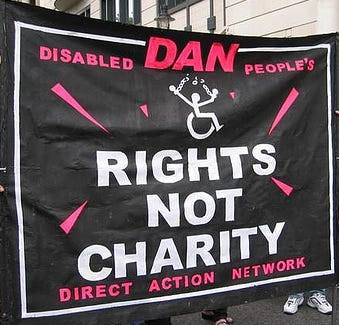 Today the greed of the ruling
class is so extreme that narrow private interests are even using
their takeover of the decision-making power of governments to
curtail the state financing of social programs, health care and
education. These areas are handed over to private financial
interests for profit. Hand in hand with this, they are turning
these into matters to be taken care of by "volunteers." Even
disaster relief and looking after refugees is all about
volunteering as a social obligation.
Today the greed of the ruling
class is so extreme that narrow private interests are even using
their takeover of the decision-making power of governments to
curtail the state financing of social programs, health care and
education. These areas are handed over to private financial
interests for profit. Hand in hand with this, they are turning
these into matters to be taken care of by "volunteers." Even
disaster relief and looking after refugees is all about
volunteering as a social obligation.
Promoting the conception of volunteering is another version of noblesse oblige. The "obligation'' to volunteer falls on "commoners" not royalty or the nobility and wealthy. These latter, in fact, give less and less unless there is a tax advantage or some corrupt scheme, such as the Trudeau government's promotion of the We Charities. The scandal was hushed up and made to disappear only to be replaced with similar schemes which reward sycophants and those ready to genuflect when commanded to do so.
The demand that teachers, firefighters, health care personnel and so many others must volunteer their time, expertise, skills, and so on is against the interests of the working class. The working class opposes the disastrous consequences of natural disasters or the refugee crisis and the lack of adequately staffed hospitals, libraries, schools, and the suggestion that volunteers can do the job of looking after things.
Social solidarity in a society which puts the human factor/social consciousness at the centre of its considerations is not based on an outlook of All for One, but on upholding the rights of all by virtue of being human. The institutions which are guided by that outlook will put the decision-making power in the hands of the people themselves in every sphere of life. Seeking mercy from condescending saviours will be ruled out because such condescending saviours will no longer exist.
Practices based on noblesse oblige and volunteerism are some of the means to perpetuate this system that enforces a supreme power which is not vested in the people. How it actually works to keep the people disempowered is dismissed when the constitutional monarchy is spoken of as being merely symbolic, as if a symbol -- and an institution for which we pay dearly to be symbolic -- has no content.
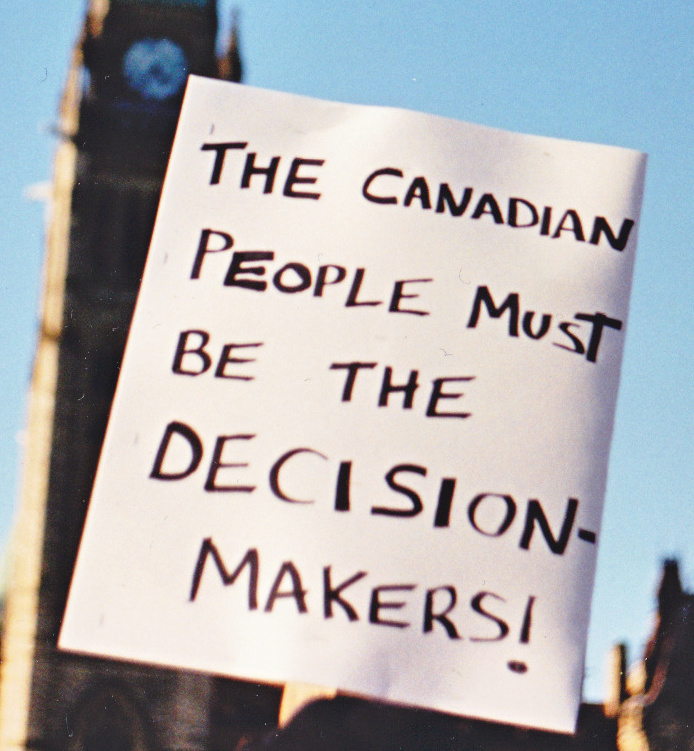 Of what is it symbolic? Of the
people's disempowerment. While the emperor struts around naked
and all his courtiers ooh and aah about what a beautiful suit of
clothes he is wearing, they are not covering up that the emperor
is naked but that the people are naked. The king has all the
power, sustained by his courtiers, to strut around naked or any
way he wishes, while the people are powerless to do anything
about it but stare. It takes more than a child crying out that
the king is naked. It takes concrete measures by which the
people empower themselves to discuss the problems society faces
and provide themselves with solutions.
Of what is it symbolic? Of the
people's disempowerment. While the emperor struts around naked
and all his courtiers ooh and aah about what a beautiful suit of
clothes he is wearing, they are not covering up that the emperor
is naked but that the people are naked. The king has all the
power, sustained by his courtiers, to strut around naked or any
way he wishes, while the people are powerless to do anything
about it but stare. It takes more than a child crying out that
the king is naked. It takes concrete measures by which the
people empower themselves to discuss the problems society faces
and provide themselves with solutions.
How the relations people enter into in a society are enforced is not an idea without content in the material world. And it is not just a matter of class content but also of national content of the nation-building project or lack thereof in the case of the monarchy and the class whose rule it is designed to perpetuate.
Facts already show that a society based on the idea that people can sustain themselves on charity and begging for mercy or volunteerism is not sustainable. The people must provide themselves with a new outlook and ways of engaging based on modern definitions and rights by virtue of being human, not their relations to private property and its owners. The nation built in the image of the bourgeoisie has exhausted itself. It is now the turn of the working class to constitute the nation and vest sovereignty in the people.
For Your Information
Conception of Service -- Text of the Sermon of the Archbishop of
Canterbury
May 6, 2023
Come Holy Spirit, set fill our hearts with the flame of your love.
We are here to crown a King, and we crown a King to serve.
What is given today is for the gain of all. For Jesus Christ announced a Kingdom in which the poor and oppressed are freed from the chains of injustice. The blind see. The bruised and broken-hearted are healed.
That Kingdom sets the aims of all righteous government, all authority. And the Kingdom also sets the means of all government and authority. For Jesus doesn't grasp power or hold onto status.
The King of Kings, Jesus Christ, was anointed not to be served, but to serve. He creates the unchangeable law of good authority that with the privilege of power comes the duty to serve.
Service is love in action. We see active love in our care for the most vulnerable, the way we nurture and encourage the young, in the conservation of the natural world. We have seen those priorities in the life of duty lived by our King.
Today we have the honour of being in this Abbey with so many who show such love; you work with charities and organisations, you build community, you serve the nation in Armed Forces, in emergency services, and so many other ways. Next door are 400 or more extraordinary young people in St Margaret's Church, whose lives speak of service. Around the world in the Realms and Commonwealth are so many more. You live your lives for the sake of others.
The unity you show, the example you give, is what binds us together and offers societies that are strong, joyful, happy and glorious. They bear heavy weights for us.
And the weight of the task given today, Your Majesties, is only bearable by the Spirit of God, who gives us the strength to give our lives to others. With the anointing of the Holy Spirit, the King is given freely what no ruler can ever attain through will, or politics, or war, or tyranny: the Holy Spirit draws us to love in action.
This is promised by Jesus who put aside all privilege, because, as the first reading tells us, God will give all things for our sake, even His own life.
His throne was a Cross. His crown was made of thorns. His regalia were the wounds that pierced his body.
Each of us is called by God to serve. Whatever that looks like in our own lives, each of us can choose God's way today.
We can say to the King of Kings, God Himself, as does the King here today, 'give grace that in thy service I may find perfect freedom.'
In that prayer there is promise beyond measure, joy beyond dreams, hope that endures. By that prayer, for every King, every ruler, and, yes, for every person for all of us, we are opened to the transforming love of God.
Notes
1. "Archbishop of Canterbury," Ben Johnson, Historic UK.
2. "The Problem with ' Noblesse Oblige,'" Amy Julia Becker, February 20, 2019.
Lifting the Veil on the Secrets of State
An issue surrounding the coronation was Charles III's avowed wish to introduce "transparency" into the most sacred part of the ceremony by "lifting the veil" at the moment when the monarch is anointed by the Archbishop of Canterbury. He made it known that he wished to allow cameras to film the most sacred part of the ceremony -- the part that is supposed to represent the sovereign's anointing God's chosen one to rule. Along with all the other medieval pomp and ceremony, this is the part designed to imbue the monarch and the supreme authority vested in him, with a sense of awe. It is through "his relationship with God" that he becomes the protector of the "mysteries of state" which is to say all the secrets to which the public are not privy because they are all the dirty deeds carried out to preserve the bourgeois state.
After much toing and froing, it was announced on April 13: "The King has now changed his mind about an element of the anointing during his coronation." Royal Central announced that "King Charles III will follow the tradition of the thirty-nine monarchs crowned before him at Westminster Abbey and ensure that the most sacred part of the ceremony, the anointing, remains private."
Indeed, the King and the Palace went all out to emphasize Charles' Christian credentials and links by sourcing the anointing oil from Jerusalem itself. The official Royal website explained that "the Chrism oil" -- a fragrant oil made from olives with which Charles and Camilla were anointed, was consecrated in the Church of the Holy Sepulchre in Jerusalem in March. It was contained within the Ampulla, "made from gold and cast in the form of an eagle with outspread wings. The oil [was] poured through an aperture in the beak. The Ampulla was supplied for the coronation of King Charles II in 1661 by the Crown Jeweller, Robert Vyner, and is based on an earlier, smaller vessel, which in turn was based on a fourteenth-century legend in which the Virgin Mary appeared to St Thomas Becket and presented him with a golden eagle and a vial of oil for anointing future Kings of England." (Thomas à Becket was the Archbishop of Canterbury murdered at the altar of Canterbury Cathedral on December 29, 1170 by knights of Henry II when he refused to give the king power over the Church.)
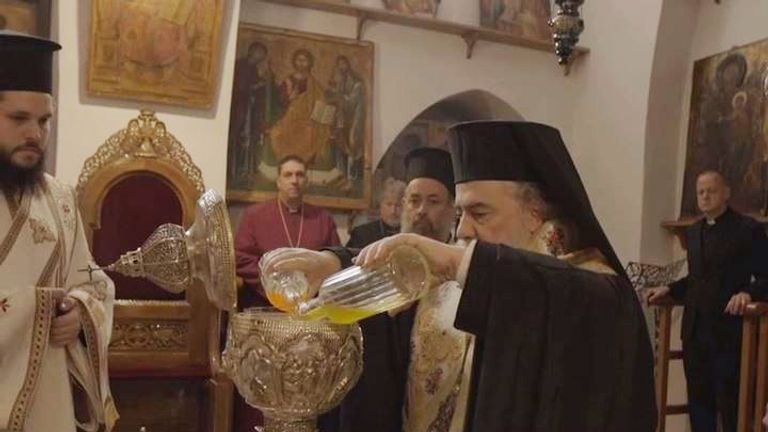 Preparing the oil for anointing Charles III
during the coronation.
Preparing the oil for anointing Charles III
during the coronation.
In his Christmas 2022 Speech, Charles III, standing in St. George's Chapel at Windsor Castle, talked about his Christian faith, of being "so close to where my beloved mother, the late Queen is laid to rest," of her faith in God and his. He talked of the need to "shine a light in the world around" and spoke of his visit to Bethlehem and the Church of the Nativity where "as the Bible tells us, the light that has come into the world was born."
Following the death of his mother, in an attempt to create a modern persona, Charles tried to have himself crowned as not just the Defender of the Faith but as the Defender of All Faiths and None. This attempt to insinuate himself into the domains of other religions and even atheists was a Church of England affair through and through, despite the prominent presence of representatives of other faiths acknowledged at the coronation.
Nonetheless, Charles' new found zeal to represent "all faiths and none" fell in line with the neo-liberal persona Charles is providing for himself as person of state, said to represent the people of all origins, religions, genders and ethnicities in the United Kingdom and all his "realms." The mask of "service" he is donning is to sell the fiction that the person of state represents the values that all people of his realms hold dear and his interpretation of these values is what makes him the unifier, the incarnation, of what people want.
It is a fiction designed to cover up where the supreme power is vested in a ruling class which takes decisions based on mysteries of state they alone have access to. The Royal We and We the People are to be understood as all those who were said to covenant to create a person of state to represent them. Thus, whatever the person of state says he stands for, ipso facto, the people. At the same time, he is anointed to represent the Covenant of Covenants, the Covenant between God and his people through which God makes the king the revealer of all his wisdom and guardian of his secrets which presumably enable him to wield the mighty sword of justice. It is important to understand that while it is a fiction, that does not mean that this rule, the supreme power the person of state represents, is simply symbolic and that he has no power.
King's Role in British Government
It is important to probe the nature of the "King's democracy" and the Parliamentary constitutional order it presides over for purposes of drawing warranted conclusions. Pertinent questions are, How does the "Royal We" become "we the people"? How does "Our Sovereign" become "Us"? As a rule, none of this is discussed.
This is what most sources tell us, which makes us none the wiser:
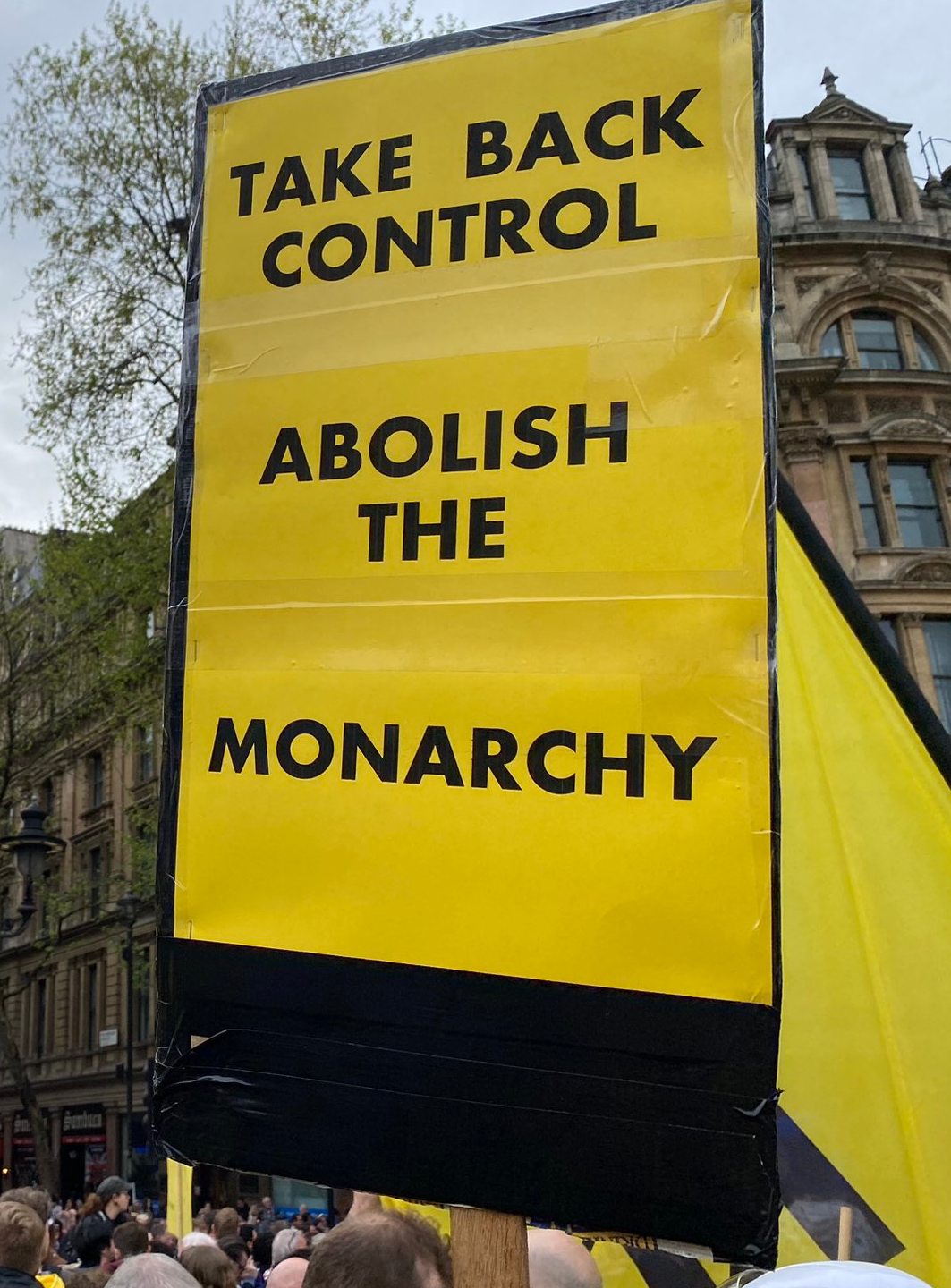 Officially "the King is the head
of the British state, the highest representative of all the
nations of Britain on the national and international stage." All
are expected to swear allegiance to the King, or at least look
up to the monarch as the person of state. Meanwhile, the Prime
Minister, who is formally appointed by the King, is "the head of
the British government," and speaks in the King's name and that
of His Majesty's government for the period that the Prime
Minister remains in office.
Officially "the King is the head
of the British state, the highest representative of all the
nations of Britain on the national and international stage." All
are expected to swear allegiance to the King, or at least look
up to the monarch as the person of state. Meanwhile, the Prime
Minister, who is formally appointed by the King, is "the head of
the British government," and speaks in the King's name and that
of His Majesty's government for the period that the Prime
Minister remains in office.
The King meets with the Prime Minister once a week, receives daily boxes of state papers for his signature, and receives information on current matters. He presides over the Privy Council of government ministers which meets on average once a month. The King formally has a say in enacting Parliamentary legislation alongside the Prime Minister and the very few Ministers that draft the Parliamentary laws in Westminster.
Following the Queen's death, members of the Parliaments and the militaries in England, Scotland and Wales as well as in Canada and other countries considered the "King's realms" where he is also head of state, have sworn allegiance, or had their allegiance updated to the constitution which enshrines Charles III as King and as "commander" of the armed forces. This is said to ensure "the stability of the constitutional order."
Constitutional order, according to U.S. legal scholar Mark
Tushnet in his 2003 book The New Constitutional Order,
is "a reasonably stable set of institutions through which a
nation's fundamental decisions are made over a sustained period,
and the principles that guide those decisions. Both institutions
and principles constitute a constitutional order. These
institutions and principles provide the structure within which
ordinary political contention occurs..." On the institutional
level, a constitutional order includes the executive office,
supreme court, legislatures, and national political parties. The
constitutional principles cannot be understood except in the
context of the institutional arrangements which exist,
prevailing in the national government's other branches. They go
beyond judicial doctrine and juridical interpretations and can
only truly be comprehended by looking at the state of the
society they preside over.
Music Video
Tom Robinson -- The Mighty Sword Of Justice
The Obsolete King's Commonwealth
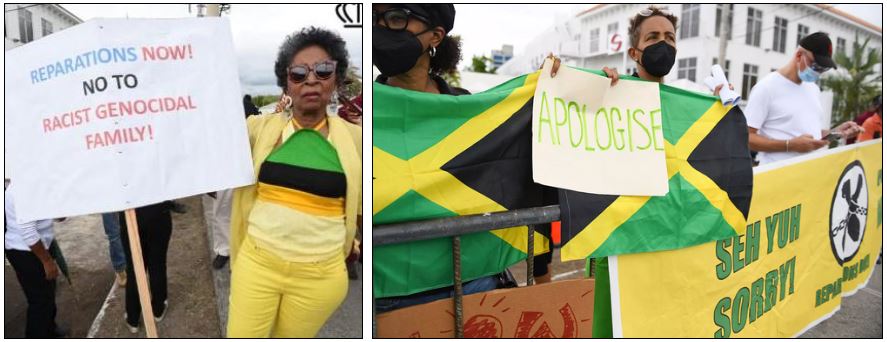
Protests in Jamaica during the Royal family's Jubilee
Tour, in March 2022.
The King's Commonwealth, which remains a means to perpetuate neo-colonialism, is an anachronism in the 21st Century.
The whole coronation ceremony was calculated to emphasize Charles III's historical links with the past, the ancient symbols of inheritance and power, and his divine right to rule and be who he says he is. The Royal website said "the Coronation Regalia are sacred and secular objects which symbolize the service and responsibilities of the monarch. The Regalia have played a central role in Coronation Services for hundreds of years and, in keeping with tradition," they were used at Westminster Abbey on May 6.
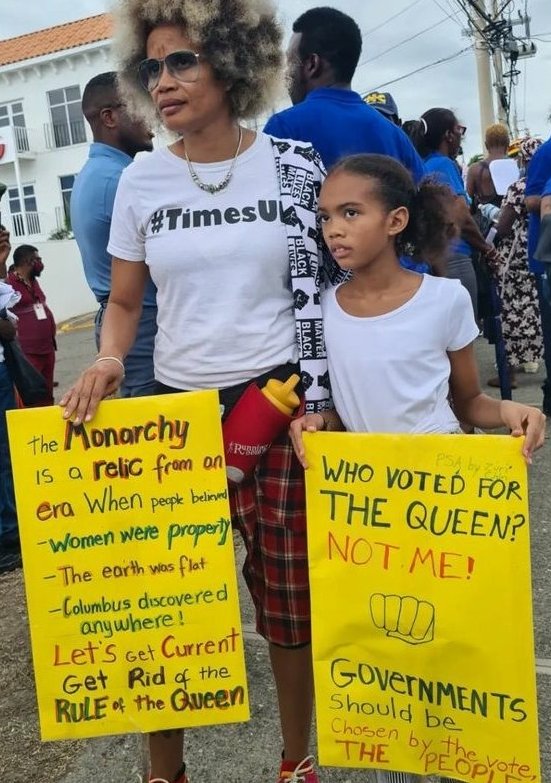 What it aptly illustrates is just
how Charles III's idea of himself and the fiction that he is
desperately trying to portray is so manifestly out of step with
the requirements of the times. He inhabits a role that no longer
functions in the way it was originally envisaged under Covenant
Thesis. According to that thesis, the Sovereign incarnates the
supreme power and stands at the apex of the system of
representation where he or she or they speak on the people's
behalf.
What it aptly illustrates is just
how Charles III's idea of himself and the fiction that he is
desperately trying to portray is so manifestly out of step with
the requirements of the times. He inhabits a role that no longer
functions in the way it was originally envisaged under Covenant
Thesis. According to that thesis, the Sovereign incarnates the
supreme power and stands at the apex of the system of
representation where he or she or they speak on the people's
behalf.
The persona Charles III is creating for himself exposes him as just another player in the factional fight within the ruling class over control of the productive forces and resources of the world for private gain. His attempt to reinvent himself and to validate his authority merely serves to distract the people and to keep them from empowering themselves. However, it also violates the very conception contained in Covenant Thesis that the Supreme Power must be seen as capable of unifying the warring factions. This is clearly not the case. His Kingship is a last ditch effort to resuscitate an outmoded and moribund arrangement, but will achieve the opposite.
The people of the United Kingdom, and his "realms and territories" are in no mood to accept this fiction because they know who these people are. The persona Charles III is giving himself, is certainly not modern and will not give the state a modern personality.
The Monarchy and "Soft Power"
Charles III and the Rebooting of Britain's
"Soft Power"
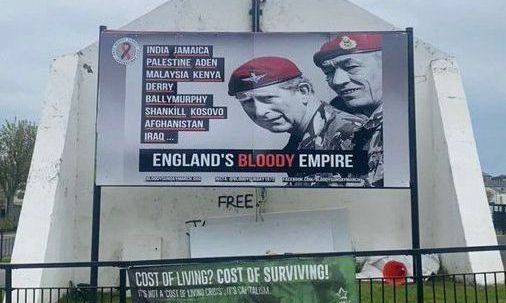 Derry, Northern Ireland
Derry, Northern Ireland
Baroness Sandip Verma, writing in PoliticsHome in May of her visit to India with the India (Trade and Investment) All-Party Parliamentary Group, says that the delegation were "reminded regularly during the visit of the value and importance of face-to-face engagement." She said at every opportunity they were reminded that "Great Britain remained an important partner and friend to India." She then throws in the caveat, "However, it was noted that our soft power -- once the envy of the world -- needs a reboot in response to the shifting global dynamics of emerging nations such as India."[1]
Baroness Verma reflects on how she alleges the coronation of King Charles III "was a great opportunity to showcase the very best of what we have to offer the world and yet there are so many gems that remain hidden." She draws the conclusion, "Our new monarch provides us with an opportunity to establish stronger and outward-reaching connections through unique institutions like the Commonwealth, showing current and future generations the strength of shared common values and causes." She ends by "raising a toast to a brighter and stronger future for Great Britain's place in the world and how we ensure we play our part in that future."
In seeking to define King Charles' constitutional role as sovereign and his symbolic function as representative of the state in this way Charles III is willy nilly being drawn into global political matters, that are far from symbolic and neutral. He is seen to be stepping beyond his allegedly symbolic role.
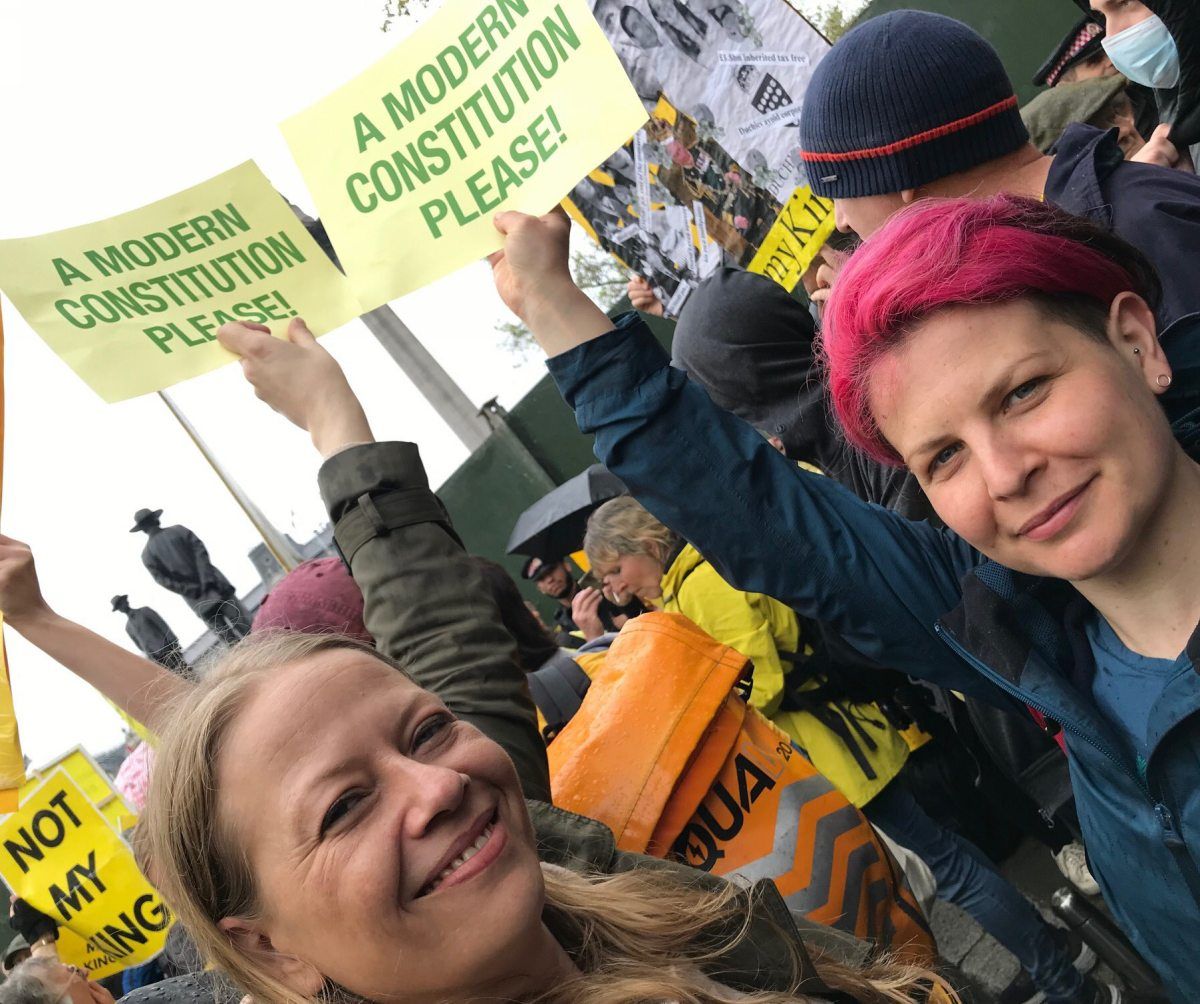 The term "soft power" purposely
connotes a benign and innocuous influence to hide a more
sinister and dangerous political motive. But the "soft power" of
Britain is far from benign, involving use of the political
police to carry out subversive operations such as the so-called
"colour revolutions." It is utilized with the aim of bringing
about regime change whenever the likes of the U.S., Britain and
their allies decide this is required to uphold their "civilized
values" and "shared common values and causes" of which Baroness
Verma is apparently so fond.
The term "soft power" purposely
connotes a benign and innocuous influence to hide a more
sinister and dangerous political motive. But the "soft power" of
Britain is far from benign, involving use of the political
police to carry out subversive operations such as the so-called
"colour revolutions." It is utilized with the aim of bringing
about regime change whenever the likes of the U.S., Britain and
their allies decide this is required to uphold their "civilized
values" and "shared common values and causes" of which Baroness
Verma is apparently so fond.
An argument is being given that, far from being above politics, the monarch should be in the fray, acting more like the heads of state of the U.S., France and other countries who are the key spokespersons for the war industry in their own countries and on behalf of the U.S./NATO alliance of which they are members. Charles himself is behaving as though he comprises a faction based on his own vested interests, which are considerable, vying for power and influence. Under the reign of Charles III any illusions about the role of the constitutional monarch being symbolic are due to be shattered.
In Britain's constitutional monarchy there exists a convention that the sovereign maintains strict political neutrality. This is nothing but a fiction of the Fictional Person of State as contradicted by the actual reality of the factional exercise of "soft power," which goes hand in hand with the "hard power" of military might and aggression.
King Charles III is indeed in the fray of promoting this kind of "soft power," under which Britain has in the 21st century alone committed many crimes against humanity. Under the legacy of a "tradition" of monarchy, Britain has used its colonial and imperialist might to maintain its criminal empire. This includes, of course, its heinous role in its "jewel of the crown," India, from which the Indian people themselves are still struggling to break free.
The monarch is in every way a block to the progress of society. For a modern democracy, it is the people who must be empowered, and in this sense replace "soft power" and "hard power" alike with their own decision-making authority.
Note
1. Baroness Sandip K. Verma, is an appointed Conservative member (peer) of the House of Lords, the upper house of the British Parliament, and former international development minister. She was born in Amritsar, Punjab.
(Workers' Weekly)
Letter to the Editor on British Armaments Company's Role in Canada

British arms manufacturer BAE Systems is contracted to supply
Canada
with the Type 26 frigate, shown above.
Your article on the warmongering of Charles III showed among other things how war production is a parasitic drain on the British economy. This is also the case in Canada where the government has contracts with the UK-based BAE Systems to the tune of billions of dollars.[1]
The Canadian government in 2018 selected BAE's Type 26 design platform for 15 surface combat ships costing billions of dollars. The government touts this war expenditure as fulfilling Canada's "National Shipbuilding Strategy," aimed at building a "Blue Water Navy" that can maraud all over the world at the behest of NATO and the United States. Irving Shipbuilding in Halifax, Nova Scotia is building the BAE-designed combat ships with U.S. war producer Lockheed Martin the main contractor overseeing the project.
The decision to go with the BAE Type 26 ship was controversial when selected, as the design only existed on the drawing board. In an article for Canadian military magazine Esprit de Corps, David Pugliese writes that at the outset of the process to acquire the ships the Liberal government promised "only mature existing designs or designs of ships already in service with other navies would be accepted, on the grounds they could be built faster and would be less risky. Unproven designs can face challenges as problems are found once the vessel is in the water and operating."
Pugliese continues, "The criteria was later changed by the Canadian government for reasons that are not entirely clear. (The other ships that were in the Canadian competition were all proven and in service with allied navies.)"
Knowing BAE's enormous presence in the British economy and contacts with its ruling elite, one wonders if the Royal Family performed a "sword dance" for the fawning Liberal government to secure BAE's bid and win the contract.
A sense of the public resources BAE and its partners are removing from the Canadian economy for this war production arises from its constantly expanding budget. The Canadian Treasury Board's original approval was for $26 billion. By 2021, the Parliamentary Budget Officer estimated the price for the 15 Type 26 ships had ballooned to $77.3 billion.
In a further article in December 2022 David Pugliese writes, "MPs on the House of Commons Government Operations Committee said they now expect the cost for the 15 ships to be around $100 billion." The article also notes that the acquisition, operating and supporting of the ships throughout their life-cycle of approximately 30 years will cost Canadians between $213.5 and $219.6 billion.
The ships of the Type 26 design being built for the British Navy will be equipped with a missile defence system, a 127 mm medium calibre gun, flexible mission bay, Artisan 997 Medium Range Radar and towed array sonar. The flight deck will be able to accommodate helicopters up to the size of a Chinook, while the mission bay can adapt to house containers and deploy manned or unmanned vessels and vehicles. In total, the UK, Australian and Canadian Navies will operate 32 anti-submarine warfare frigates, all based on the Type 26 reference design.
Note
1. BAE Systems plc is a British global arms, security, and aerospace company based in London, England. It is the largest defence contractor in Europe, and ranked the seventh-largest in the world based on applicable 2022 gross income of $36 billion while employing 93,100 workers. As of 2017, it is the biggest manufacturer in Britain. (Wikipedia)
In the Canadian Parliament
Threats Against Quebec Party Leader Reveal Impotence of Establishment Forces
On October 25, a lengthy session took place in the House of Commons as Bloc Québécois leader Yves-François Blanchet introduced a motion on the ties between the Canadian state and the British monarchy. The majority of Members of Parliament (MPs), Liberals and Conservatives especially, were incapable of producing any arguments of substance on the topic at hand. Their inability to engage in serious discussion by contributing arguments of substance reveals a lack of respect for the views of those who do not agree with them. It also, one might say, reveals an intolerant and anti-Quebec prejudice towards those who uphold positions of principle important to the constituents they represent.
The refusal to debate the issue of the ties between the Canadian state and the monarchy, and between Canadians, Quebeckers and Indigenous Peoples and the monarchy does not in any way strengthen the Canadian democracy they so loudly claim to be defending.
 The
meeting culminated with threats issued against the leader of the
Bloc Québécois on the grounds that he did not sincerely pledge
allegiance to the sovereign when he took his seat in the House
of Commons and therefore, he should lose his seat. It was a
boorish deliberate misinterpretation of the remarks of the
leader of the Bloc who was explaining that the oath of
allegiance to the King of England is a violation of the
conscience of MPs. Some demanded that, since his oath of
allegiance to the monarch upon taking his seat in the House was,
in his own words, not sincere, he should be thrown out of
office. The most hysterical assault on the leader of the Bloc
was made by the Parliamentary Secretary to the Leader of the
Government in the House Kevin Lamoureux.
The
meeting culminated with threats issued against the leader of the
Bloc Québécois on the grounds that he did not sincerely pledge
allegiance to the sovereign when he took his seat in the House
of Commons and therefore, he should lose his seat. It was a
boorish deliberate misinterpretation of the remarks of the
leader of the Bloc who was explaining that the oath of
allegiance to the King of England is a violation of the
conscience of MPs. Some demanded that, since his oath of
allegiance to the monarch upon taking his seat in the House was,
in his own words, not sincere, he should be thrown out of
office. The most hysterical assault on the leader of the Bloc
was made by the Parliamentary Secretary to the Leader of the
Government in the House Kevin Lamoureux.
Congratulations to Niki Ashton for intervening in the debate politically and explaining the merits of the Bloc position. The vote on the Bloc motion took place the next day and it was voted down. About all one can say about the low-level calibre of the majority of MPs was that, the more it goes, the more the need for the democratic renewal of the political process and modernization of the constitutional foundation of Canada is revealed.
The threats issued by the Parliamentary Secretary amount to boorishness, diversion and obfuscation of the issues under debate, which require sound arguments from all quarters, not pot shots. Should the Commons decide to remove the Bloc MP for speaking his mind, it will deepen the constitutional crisis faster than fast can be. As it is, attempts to criminalize opinion in the House of Commons not only brand the likes of the Parliamentary Secretary as unworthy opponents but as cowardly as well.
For Your Information
The Bloc Québécois motion reads as follows:
"That, given that, (i) Canada is a democratic state, (ii) this House believes in the principle of the equality of all, the House express its desire to sever ties between the Canadian state and the British monarchy, and call on the government to take the actions necessary to do so."
In support of the motion, the leader of the Bloc essentially said that Parliament is a democratic institution, which can be seen from the fact that it is the citizens of Quebec and Canada who, through their elected representatives, riding by riding, make the decisions. The people choose the elected officials. They did not elect King Charles III. Yet voters are told that although it is the very pinnacle of power in the structure of Canada's Constitution, the monarchy is not important, it is not a priority, and that the House could be doing other things.
Blanchet pointed out that the issue is all the more important if Canada's leader is a conquering foreign king, which means that Canada cannot be seen in the world as a modern state.
The monarchy is not a symbol, he continued. It costs Canadians $70 million a year that could go to seniors, social housing, etc.
The proof that the subject is important is that to resolve the issue, the Constitution must be reopened. The fear of reopening it, he said, is that no one is comfortable with its content, with the fact, for example, that the British Crown is protected on the backs of Indigenous Peoples whose rights are denied.
It is all the more important for Quebec, he added, because the King of England is the king of the conquering empire. It is important because Quebeckers are still a conquered people, who must swear an oath to the King of England, an oath that comes from the time of the British Empire, which was racist and slave-owning.
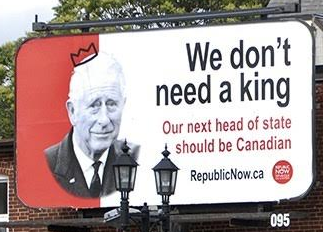 Thousands
of people in each riding who vote for a member of parliament and
therefore for the head of state are more important than a king
who knows nothing about the people, he said. Canadians and
Quebeckers have a right to know whether the oath is to the
British Crown or to the Canadian people.
Thousands
of people in each riding who vote for a member of parliament and
therefore for the head of state are more important than a king
who knows nothing about the people, he said. Canadians and
Quebeckers have a right to know whether the oath is to the
British Crown or to the Canadian people.
Blanchet argued that Bloc Québécois MPs cannot be sincere when
they swear an oath to the British monarch because it is a
coerced oath, and they are obligated to do it if they want to
oppose the abandonment of the environment by the Canadian
government whose ultimate allegiance it would seem is to the
lobbies, if they want to oppose the lack of respect of this
government for Quebec, for French, for equality and secularism,
etc.
Ensuing Debate
In the ensuing debate, the Liberals took the lead by saying first of all that reopening the Constitution is not a priority, that Canadians have other priorities in mind -- seniors, the health care system, jobs, etc., as if the Canadian government is defending the rights of the people on all these issues. Others went on to say that Canadian democracy is alive and well, as a constitutional monarchy, and the proof is that it was the Queen of England who signed the 1982 Constitution and the Canadian Charter of Rights and Freedoms, which are the pillars of Canadian democracy.
They denied even the fact that this 1982 Constitution was never signed by Quebec, that the old constitutional order imposes a power on the people that is above them, a power that operates on the basis of police powers to criminalize the struggles of the people. They claimed that constitutional monarchy would in fact be a source of political stability for Canada
The Conservatives followed by essentially repeating throughout the debate that Quebeckers are concerned about more important issues such as the cost of gas, food, heating, immigration at Roxham Road, etc.
The NDP continued on a diversionary path, but with a different angle. Its first debater said that he supports the part of the motion that says "Canada is a democratic state" and that we believe "in the principle of equality for all." He then launched into the diversion that it is the electoral system that should be attacked, not the British monarchy, pointing to the disproportion between the number of votes obtained and the number of seats in the House.
However, Niki Ashton, the NDP member for Churchill-Keewatinook Aski, offered a different view. She said she would support the Bloc's motion because it is necessary to move to a new stage and strengthen democracy by ending the Canadian state's ties to the British monarchy.
She added that Canada needs to look at its own institutions and processes. That the need, for example, for true reconciliation with Indigenous Peoples shows that the path of decolonization must be pursued and that this must include ending Canada's ties to the British monarchy, which is a symbol of colonialism for Indigenous Peoples and many people who have come from all over the world to make a life for themselves in Canada.
The debate went off on another tangent when the Liberals began to question the right of the leader of the Bloc Québécois to take his seat in the House because he said he was not sincere when he took his oath to the British monarch. The most hysterical was the Parliamentary Secretary to the Leader of the Government in the House of Commons, Kevin Lamoureux. He said:
"I rise on a very serious matter. The Member for Beloeil--Chambly today made a very disturbing statement when he clearly stated that his oath of allegiance to the Crown was not sincere. If it was not sincere, it is as if he never took it. As such I believe the Speaker should look into the appropriateness of the member continuing to sit in this place. We all know the Constitution states that each member must take an oath or make a solemn affirmation and that breaking this would be a very serious offence."[1]
The Speaker of the House said he would study the matter and
bring it back to the House with a ruling.
On October 27, 2022, the Speaker gave his ruling, which in fact
did nothing to substantially address any of the points raised by
MPs in the House or to advance discussion on the matter, but in
fact sidestepped the matter in favour of maintaining the status
quo. He stated that by swearing the oath of allegiance MPs are
"swearing an oath to the constitutional principles of our
country. A member's role includes important duties and
responsibilities, and the oath reminds us of them."
He went on to reiterate his remarks from October 25 when he
"quoted the third edition of House of Commons Procedure and
Practice, and I referred to a similar situation that arose
in 1990. The Chair would like to reiterate the conclusions of
the decision Speaker Fraser made on this subject on November 1,
1990. I will now quote from page 14970 of the Debates:
"'Your Speaker is not empowered to make a judgment on the
circumstances or the sincerity with which a duly elected member
takes the oath of allegiance. The significance of the oath to
each member is a matter of conscience and so it must remain.'
"All members of this House are honourable members and the Chair
expects that they act accordingly, in words and in deed.
"In the same ruling cited from November 1, 1990, Speaker Fraser
reminded the House, at the same page of Debates, that 'only the
House can examine the conduct of its Members and only the House
can take action if it decides action is required.'
"It is therefore the House itself that has authority over its
members. It is for the House, not the Chair, to pass judgment on
their conduct. That said, some matters should be approached with
a great deal of caution. We may have here a convincing example
of such an issue, on both sides."
Note
1. To read the House of Commons Debates Official Report (Hansard), Tuesday, October 25, 2022, on the discussion click here.
Significant and Historic Support for Motion to Sever Ties Between Canada and British Monarchy
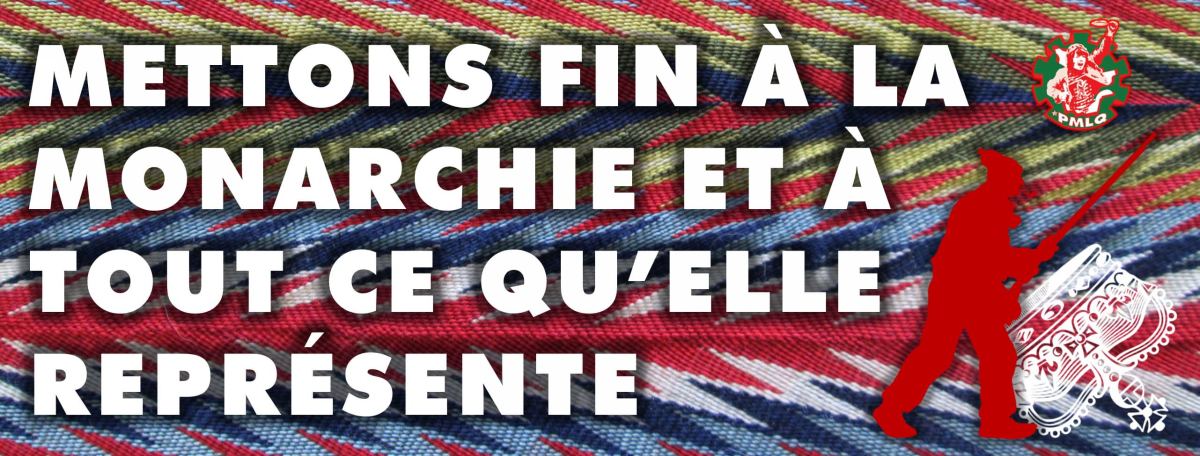
In the House of Commons on October 26, 2022, 44 Members of Parliament (MPs) voted in favour of a Bloc Québécois motion, introduced the previous day, to sever ties between the Canadian state and the British monarchy. Two hundred and sixty-six MPs voted against the motion.
The 31 Bloc Québécois MPs present at the vote (out of a total 32 MPs) voted in favour of the motion, and 13 other MPs did the same.
These others were:
- Charlie Angus, NDP, Timmins--James Bay, Ontario
- Niki Ashton, NDP, Churchill--Keewatinook Aski, Manitoba
- Alexandre Boulerice, NDP, Rosemont--La Petite-Patrie, Quebec
- Laurel Collins, NDP, Victoria, BC
- Don Davies, NDP, Vancouver Kingsway, BC
- Blake Desjarlais, NDP, Edmonton Griesbach, Alberta
- Leah Gazan, NDP, Winnipeg Centre, Manitoba
- Matthew Green, NDP, Hamilton Centre, Ontario
- Lori Idlout, NDP, Nunavut
- Jenny Kwan, NDP, Vancouver East, British Columbia ;
- Alain Rayes, Independent, formerly Conservative,
Richmond--Arthabaska, Quebec
- Joël Lightbound, Liberal Party, Louis-Hébert, Quebec and
- Mike Morrice, Green Party, Kitchener Centre, Ontario.
Some of these MPs made interventions during the debate that announced or implied that they would vote for the Bloc motion.
The most substantive intervention was made by Niki Ashton, who clearly expressed her support for the Bloc motion. She said, in part:
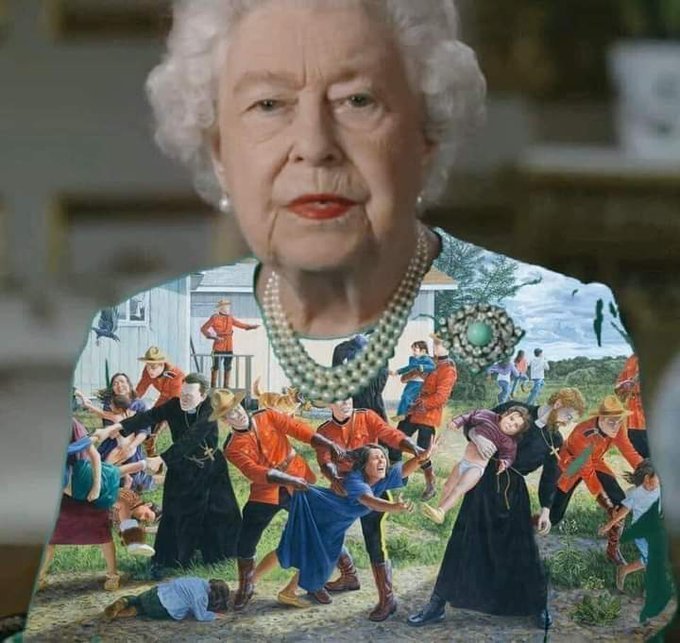 "We must
acknowledge the second-ever National Day for Truth and
Reconciliation, which has built on the work of the Truth and
Reconciliation Commission, making it clear that we must
recognize the truth when it comes to Canada's ugly history of
colonization. That colonization is rooted in the Crown's
control, to its benefit. With the Indian Act, the
reserve system, the residential school system, the pillaging of
Indigenous resources and the genocide of Indigenous peoples, the
devastating impacts of colonization are still evident today.
"We must
acknowledge the second-ever National Day for Truth and
Reconciliation, which has built on the work of the Truth and
Reconciliation Commission, making it clear that we must
recognize the truth when it comes to Canada's ugly history of
colonization. That colonization is rooted in the Crown's
control, to its benefit. With the Indian Act, the
reserve system, the residential school system, the pillaging of
Indigenous resources and the genocide of Indigenous peoples, the
devastating impacts of colonization are still evident today.
"Reconciliation means carrying on a journey of decolonization and this must include ending our ties with the British monarchy. The monarchy is a symbol of colonialism for many Indigenous peoples and for many people who have come to Canada from around the world. Many people left countries for a better life because of the conflict, impoverishment and repression waged by the British Crown. Many left from countries that had struggles for independence and where resistance was brutally quashed by Britain and those who served the British Crown, including India, Malaysia and Cyprus. The list of countries goes on."
Leah Gazan said:
"Madam Speaker, my honourable colleague brought up two words, 'freedom' and 'privilege.'
"Cassidy Caron, president of the Métis National Council, is calling on the Crown to apologize for its participation in residential schools. Paul Andrew, a residential school survivor, said the Queen was also a treaty member and had an obligation to live up to agreements that the Crown has never lived up to, such as the participation of the monarchy in slavery. Not everybody in this place we now call Canada has had that freedom and privilege we are talking about. In fact, many of us, in real time, are still fighting for freedom, still fighting for our rights, still fighting for our privilege, an erasure of genocide and colonial history that the Crown has participated in globally.
"I would ask the honourable member if he agrees with me that the Crown has participated in the violent genocide of groups of peoples across the globe."
During a debate on Aboriginal affairs during the same day, Lori Idlout said:
"For too long, First Nations, Métis and Inuit were ignored when they shared their stories about the loved ones they lost to the residential school system. All these decades of being ignored have stifled the path to healing. It is outrageous that Indigenous communities must beg and plead for funding. Delays on delivering the promises made must stop. Inuit, Métis and First Nations have been given far too many promises that have not been acted on.
"The Minister of Crown-Indigenous Relations said, 'Some have said it could take up to 10 years, and the worst thing to see would be for any government to step away from that commitment. We will keep doing it, but at their pace.'
"In Budget 2022, there was one curious line item. It said the budget would provide $5.1 million to Public Safety Canada to ensure the Royal Canadian Mounted Police could support community-led responses to unmarked graves. By funding the RCMP instead of supporting Indigenous-led organizations, such as Survivors' Secretariat, the government is supporting further practices of colonialism. Why are these funds not directly funding Indigenous Peoples to heal from the shameful legacy of residential schools and colonialism?"
Liberal MP Joël Lightbound said, among other things:
"Mr. Speaker, I thank my colleague for her speech. I think this is a rather interesting debate we are having in the House this morning. I share many of the sentiments of my colleagues across the way. To me, swearing an oath to the British Crown after every election is not a fond memory. It is something that I would certainly forego. I think my attachment to the British Crown is likely as strong as theirs." He later told Le Devoir that federal MPs should in future have the choice of whether or not to take the oath to the British monarch.
These speeches and the vote contributed to the opposition to threats that were made in the House of Commons, in particular by the Parliamentary Secretary to the Leader of the Government. He said that the leader of the Bloc should be stripped of his seat in the House because he said that the oath of allegiance to the King of England was coerced and violated the conscience of MPs and that therefore his pledge of allegiance was not sincere.
Following the vote, MPs addressed this violation of conscience.
Acadian Liberal MP for Madawaska-Restigouche in New Brunswick, Rene Arseneault, who voted against the Bloc motion, said he is uncomfortable with having had to swear allegiance to the Queen of England since his election in 2015. "My history is that it was with the help of this oath that the Acadians were deported. If you know your history, you're not comfortable with that."
He told Le Devoir that he would be willing to work on a motion or a bill that would remove the mandatory nature of the oath.
Bloc Québécois leader Yves-François Blanchet said the support shows that the debate on the issue is far from over. "I think it's the tip of an iceberg that is telling us that we should take the oath according to our conscience."
Meanwhile, the day after the vote, some of the Liberal MPs maintained that Blanchet should not be allowed to keep his seat.
"He shouldn't be in the House if he wasn't honest in the commitment he made," said Judy Sgro, MP for Humber River--Black Creek in Ontario.
Prime Minister Trudeau seemed to want to avoid a constitutional crisis that would break out if the Leader of the Bloc was to be expelled from the House of Commons. The day after the vote, he said: "The reality is that there are many people who swear an oath to the Queen to become citizens and then withdraw it. Mr. Blanchet has been elected by Canadians to serve in this House and he will explain himself as he sees fit regarding the oath."
New Democratic Party leader Jagmeet Singh did not vote, nor did seven of his MPs. "The purpose of the motion is not a priority for him, just as it is not a priority for the people," his office said.
(To access articles individually click on the black headline.)
Website: www.cpcml.ca Email: editor@cpcml.ca


